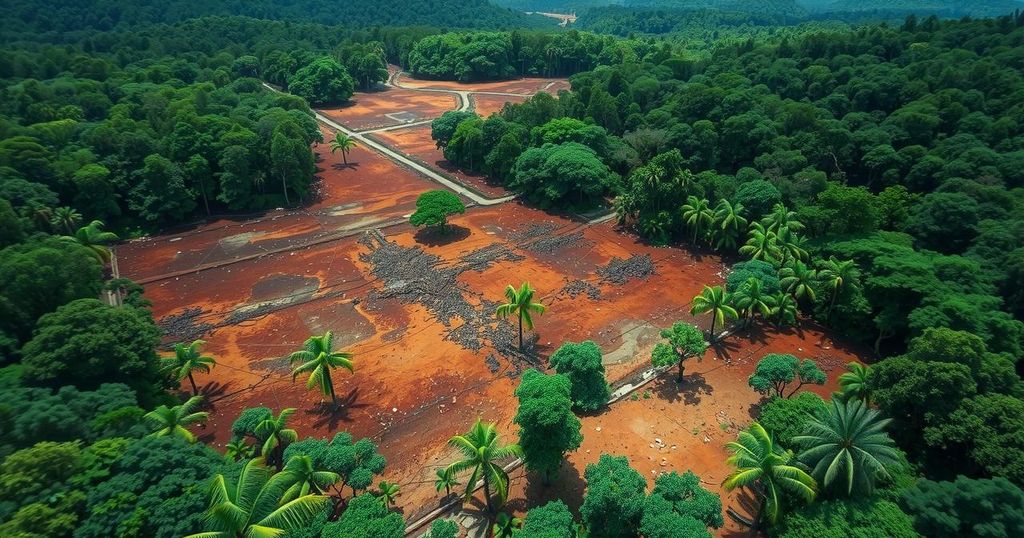Brazil is facing international outrage as it clears large areas of the Amazon rainforest for the construction of a highway intended for the COP30 climate summit. This extensive development contradicts the summit’s goals of promoting sustainability, leading to significant ecological damage and community backlash. Local residents express concerns about the loss of their livelihoods due to deforestation, calling into question the authenticity of climate initiatives.
A significant protest has erupted internationally as Brazil has initiated extensive deforestation in the Amazon rainforest to construct a highway for the upcoming COP30 climate summit. This eight-mile motorway is intended to facilitate access for delegates attending the summit, aimed at promoting sustainability and environmental awareness. However, its construction has resulted in the clearing of vast areas of tropical forest, creating deep concern about the environmental implications.
The project involves a massive four-lane highway cutting through pristine rainforest in Belém, Pará, with preparations ramping up for the climate conference scheduled for November. Thousands of acres of forest have already been lost due to this infrastructure development, undermining the very objectives the summit seeks to uphold.
Brazilian President Luiz Inácio Lula da Silva visited the highway construction site in February, expressing support for the construction of venues and auditoriums for the comprehensive event. Anticipating over 50,000 attendees, including notable figures like Prince William, the project has left an irrefutable mark on the landscape, presenting a striking contradiction to the climate change goals intended for the conference.
Forests serve as vital carbon sinks, absorbing harmful CO2 emissions; thus, the highway’s development has disrupted crucial ecosystems. This has triggered backlash from conservationists and local communities, raising alarms over the environmental and social repercussions of the project.
Despite assertions from the government regarding “sustainable” construction methods, local residents have expressed anger at what they view as destruction of protected areas. Claudio Verequete, an açaí berry harvester, conveyed his distress over the impact on his livelihood as many trees essential for his income have been removed.
As COP30 approaches, discussions of the contradictions in climate action have intensified. The project, intended to foster environmental progress, has revealed the harsh realities of ecological harm, leading to serious inquiries regarding the authenticity of commitments to sustainability at global summits.
The infrastructural developments in Brazil for the COP30 climate summit have ignited global criticism due to their detrimental effect on the Amazon rainforest. As thousands of acres of forest are lost under the guise of sustainable development, the discrepancies between the summit’s goals and actual practices come into sharp focus. This situation raises crucial questions regarding the integrity of international climate commitments and the prioritization of environmental protection amidst large-scale developmental projects.
Original Source: www.travelandtourworld.com




